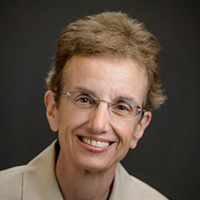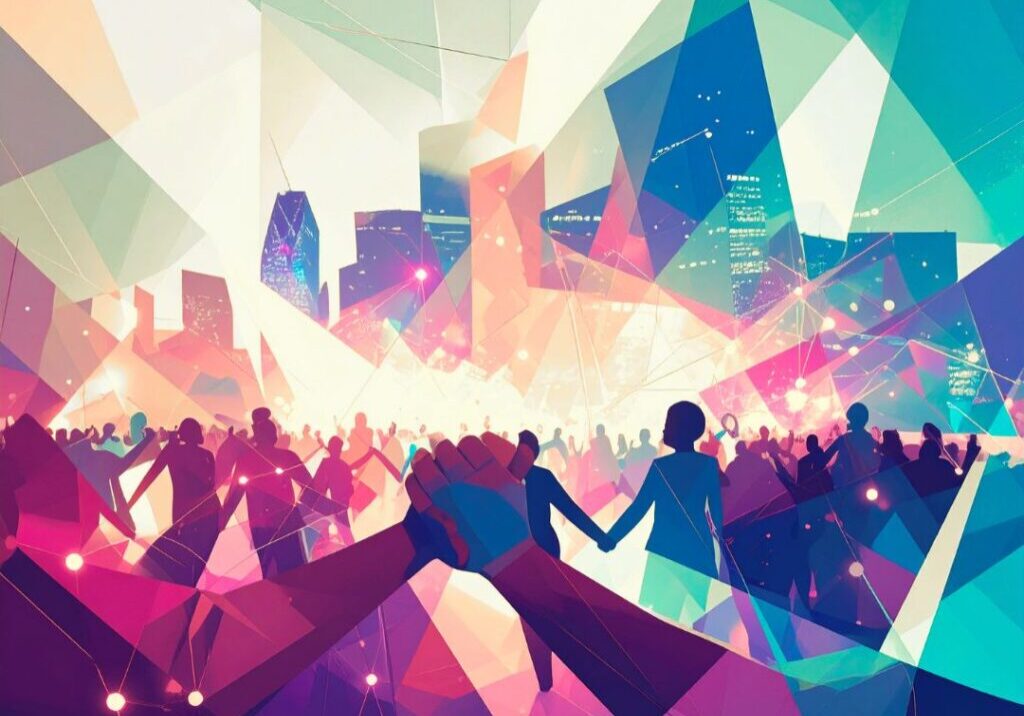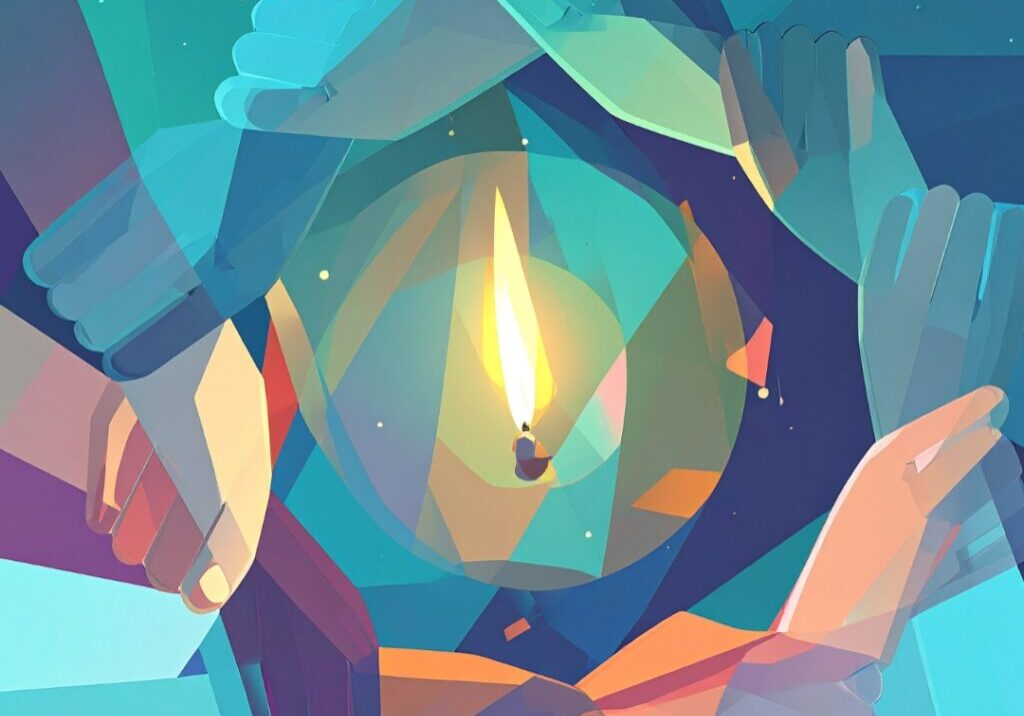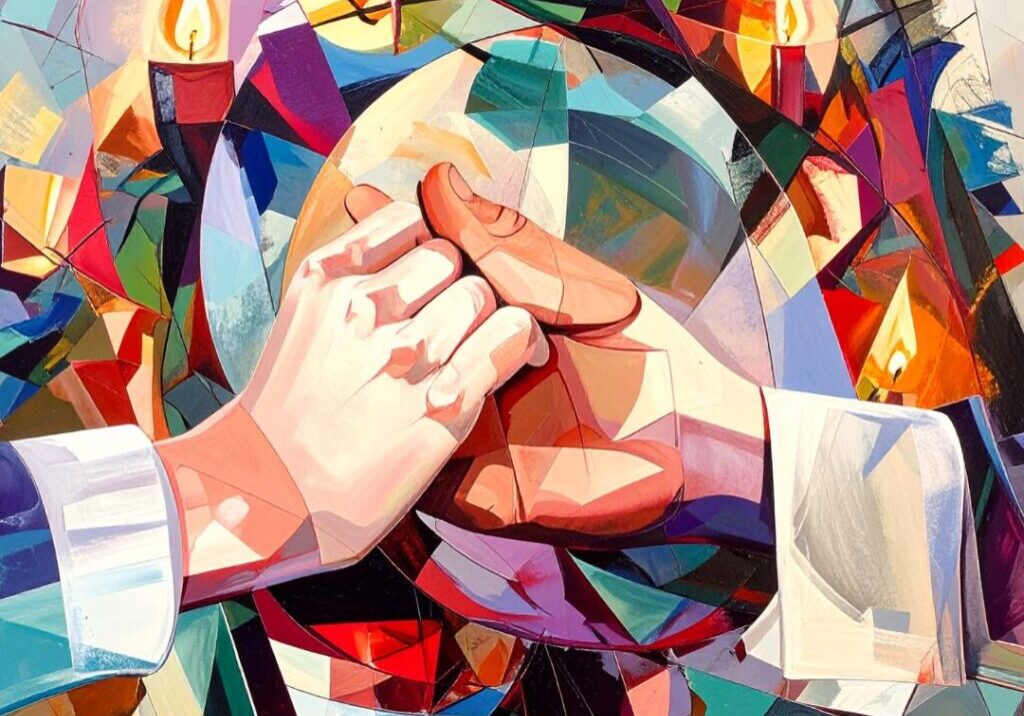New Year’s Blog: Love, Hope and Future Life
 What a year this has been! A raging virus which continues to mutate, a volatile economy, the rise of the metaverse, the tornados of Kentucky, the wildfires of California, one might think we are on the brink of the Apocalypse. Yet, a new year dawns, like the rising sun over the infinite horizon of life’s flowing waters. We have spun around the sun three hundred and sixty-five days; we have orbited the moon thirteen times in the course of a year; we are one of about six billion earth-like planets in our Milky way galaxy. What are we humans doing here on this small jewel of planet earth? Where are we going? What are we becoming? Our computer-driven world, permeated with excessive information, has created a tired and anxious species. Media feeds invade our spaces with conflicting stories of just about everything; facts do not persuade us to change but myths do. Should we listen to scientists who have identified the Covid-19 virus? Should we get vaccinated or not? Decision-making today is largely based on a combination of myth, fact and persuasive narratives. Who listens to the reasons of science or abides by the tenets of religion? Indeed, science and religion are not aligned with each other and seem to conflict. As a result, we have a garden variety of opinions: science holds persuasive power and religion seems caught in a medieval past. As a result, we cannot seem to agree on very much because no one wants to relinquish their cherished positions. And yet–there is a “we.” What accounts for the experience of a “we,” a whole, that we insist on reducing to parts? Albert Einstein wrote: “A human being is a spatially and temporally limited piece of the whole, what we call the “Universe.” He experiences himself and his feelings as separate from the rest, an optical illusion of his consciousness. The quest for liberation from this bondage [or illusion] is the only object of true religion.”[i] Similarly, Teilhard said reality is a whole in evolution:
What a year this has been! A raging virus which continues to mutate, a volatile economy, the rise of the metaverse, the tornados of Kentucky, the wildfires of California, one might think we are on the brink of the Apocalypse. Yet, a new year dawns, like the rising sun over the infinite horizon of life’s flowing waters. We have spun around the sun three hundred and sixty-five days; we have orbited the moon thirteen times in the course of a year; we are one of about six billion earth-like planets in our Milky way galaxy. What are we humans doing here on this small jewel of planet earth? Where are we going? What are we becoming? Our computer-driven world, permeated with excessive information, has created a tired and anxious species. Media feeds invade our spaces with conflicting stories of just about everything; facts do not persuade us to change but myths do. Should we listen to scientists who have identified the Covid-19 virus? Should we get vaccinated or not? Decision-making today is largely based on a combination of myth, fact and persuasive narratives. Who listens to the reasons of science or abides by the tenets of religion? Indeed, science and religion are not aligned with each other and seem to conflict. As a result, we have a garden variety of opinions: science holds persuasive power and religion seems caught in a medieval past. As a result, we cannot seem to agree on very much because no one wants to relinquish their cherished positions. And yet–there is a “we.” What accounts for the experience of a “we,” a whole, that we insist on reducing to parts? Albert Einstein wrote: “A human being is a spatially and temporally limited piece of the whole, what we call the “Universe.” He experiences himself and his feelings as separate from the rest, an optical illusion of his consciousness. The quest for liberation from this bondage [or illusion] is the only object of true religion.”[i] Similarly, Teilhard said reality is a whole in evolution:
“… we have gradually come to understand that no elemental thread in the Universe is wholly independent in its growth of its neighboring threads. Each forms part of a sheaf; and the sheaf in turn represents a higher order of thread in a still larger sheaf – and so on indefinitely …. This is the organic whole of which today we find ourselves to be a part, without being able to escape from it…in countless subtle ways, the concept of Evolution has been weaving its web around us.” [ii]
I believe deep down we know we are part of something more than ourselves, yet, we do not know how to live in the whole because our systems work against the whole. They do a good job of keeping us isolated, partial and fragmented. How to live in the emerging wholeness, empowered by the energies of love, is at the heart of the Center for Christogenesis.
In the New Year, my hope for the Center is to shift the center of gravity from the isolated self to the whole of one’s experience; from reductionism to holism; from disrupted consciousness to a flowing consciousness of love. Foundationally, I hope we can begin to understand together why science without religion is lame, and why religion without science is blind. Both science and religion have contributed to the utter chaos of our world and, yet, together, they can help us live into a new paradigm of wholeness. To do so, however, both will need to change–this is the greatest challenge of our age.
A New Year will soon dawn because God is the wellspring of all life. Where there is God, there is hope, and where there is hope, there is future. God, who is the infinite root of our fragile lives, goes before us as the incomprehensible power of love, for God is the infinite beginning of all life. With God, every end is a new beginning, and every arrival, a new departure. God is ever newness in love.
Perhaps in this New Year, we can make a choice to live in the ever newness of love, and thus to live in hope, letting go of what stifles our creative energies and reaching out toward the infinite possibilities of new life. Even when things go wrong or when plans fail, may we strive to realize that, in this particular moment, life is beginning in new ways. When misunderstandings arise or relationships disappoint, let anger not seize us but let us live in hope that new relationships will emerge, for every act of love is an act of future.
Love draws us onward to study and seek what we do not yet know; love impels us to search for what does not yet exist. Where there is love, there is the quest for life. Ultimately, to love is to see the truth of the other, to see as God sees, to see the whole. Only with the eye of the heart can one see the truth of reality, which is why love is our best teacher. Learning to live in love as scientist or theologian or housewife means we are always seeing, as if for the first time.
In this New Year, let us live in love, not complacent or resigned or stifled by negative news. Let us live, as if we are being born into something greater, more whole, more vibrant. The entire universe is resting on the future. Don’t look back, look ahead, because God is doing new things!
Notes:
[i] Albert Einstein, “Letter of 1950” New York Times (March 22, 1972). https://www.thymindoman.com/einsteins-misquote-on-the-illusion-of-feeling-separate-from-the-whole/
[ii] See his essay “The New Spirit” (1942) in Pierre Teilhard de Chardin, The Future of Man, trans Norman Denny (New York: Image Books, 2004), 74 – 89.
Image: Detail of “Woodpecker” by Fred Tomaselli, 2008
 View print-friendly version
View print-friendly version
4 Comments
Related Posts

The Great Work of Love: Chaos, Justice, and Divine Evolution
The images emerging from Minnesota—multitudes converging in defiance of bitter winter winds, voices rising in collective lament and resistance—continue to command our attention. These are not merely protests; they are…


Thank you, Ilia. “God is doing new things!” Whew. Unknowing quite what it means or portends, I say Yes and yes to the arduous discipline of remaining open referred to by Beverly Lanzetta. Loving New Year’s wishes to you,
Ilia’s new title “ Primacy of Love” just arrived in mail today, and I just read her New Year’s message, including…”God is doing new things!”
Giving thanks!
Amen to Ilia Delio’s vision, and Amen to your reply. We are participating here in a global community with singleness of purpose, with this one common destiny for all, as you are saying. We are developing a new language, a new way of seeing, and a new form of thinking to expand this vision. Ilia is certainly increasing the vocabulary!
As if more ‘signs’ were needed (not!) I translated part of this reflection into Spanish and sent it out to beyond my Carmelite circles, as well as putting it on FB ( translation available.) The resonance is AWE-full! and yet not surprising…From the Amazon rainforest to the communal kitchens in Peru to the flooded Philippine barrios to the impoverished villages in the DR Congo to the immigrant hospitality communities in Western Europe…to the widows reflection gatherings in India…I often repeat the Earth Charter affirmation: we are one. One human family, one earth community, one common destiny for all. And Ilia is increasing the vocabulary